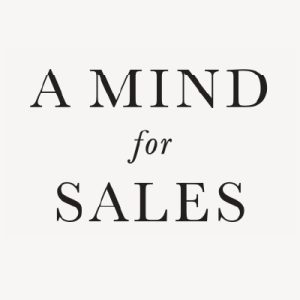 Yesterday I shared with you 10 questions you need to ask yourself about your prospecting process.
Yesterday I shared with you 10 questions you need to ask yourself about your prospecting process.
Today I’m sharing 14 more questions!
To be successful at prospecting, you have to be disciplined and have a desire to succeed.
Challenge is getting everything to align. When you do, you have a prospecting plan that matches your prospects and it is much easier to be motivated and disciplined.
An example I like to use is the person who thinks he is going to be successful selling life insurance by cold calling people. Sorry, but t’s not going to work, because the process being used — cold-calling — doesn’t match with the prospect.
The reason it doesn’t match is the percentage of people looking to buy life insurance or even thinking about buying it is far too low a percentage to make cold-calling have merit.
Conversely, if I were selling medical supplies to medical clinics, and I knew who the people were who made the buying decision, then cold-calling would work. The reason is simple — the target is continually buying new product.
What it comes down to is knowing who your prospect is in a much more detailed manner than most salespeople and companies realize.
If you haven’t already, go read the first 10 questions and then come back and read the below 14 questions.
You need to ask yourself these questions about your prospects and customers.
Answering these questions will help you begin to build a prospecting process that will work for you and what you sell.
1. What are the customer’s options should they decide not to buy from you?
2. Is every new customer for you a lost customer for someone else?
3. Is the customer’s buying decision of critical importance to them?
4. What percentage of your prospects come to you via referrals?
5. What is the close ratio of those who come to you via a referral?
6. What percentage of your customers are experiencing your product / industry for the first time?
7. How much of a financial impact does buying from you have on the customer? (Regards to cash flow, flexible resources, etc.)
8. Is the customer’s buying decision geared toward preventing a problem or enhancing an opportunity?
9. Is the customer aware of the need they have to buy from you?
10. How long does the average customer remain a customer of yours?
11. Do the majority of your new customers buy a similar item/service from you?
12. What is the “after purchase” relationship like with the customer?
13. What is the knowledge level the average prospect has with regard to what you sell and your industry when you first make contact with them?
14. How well can you profile your typical customer, and would it allow you to know better how to target them?
Increasing your effectiveness and your profit entails tailoring your prospecting process to fit the decision making process your prospects are most likely to use.
 This is why I’m a strong believer in not trying to take what works for one person, use it for someone else and think you will have the same results.
This is why I’m a strong believer in not trying to take what works for one person, use it for someone else and think you will have the same results.
For more great tips and insights on prospecting, check out my Breakthrough Sales University.
Copyright 2015, Mark Hunter “The Sales Hunter.” Sales Motivation Blog. Mark Hunter is the author of High-Profit Selling: Win the Sale Without Compromising on Price.




